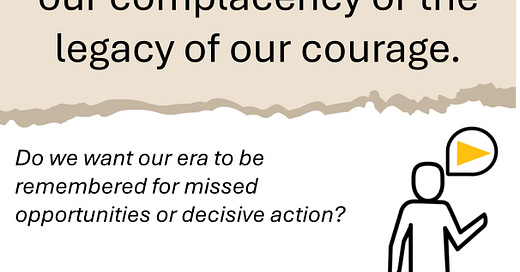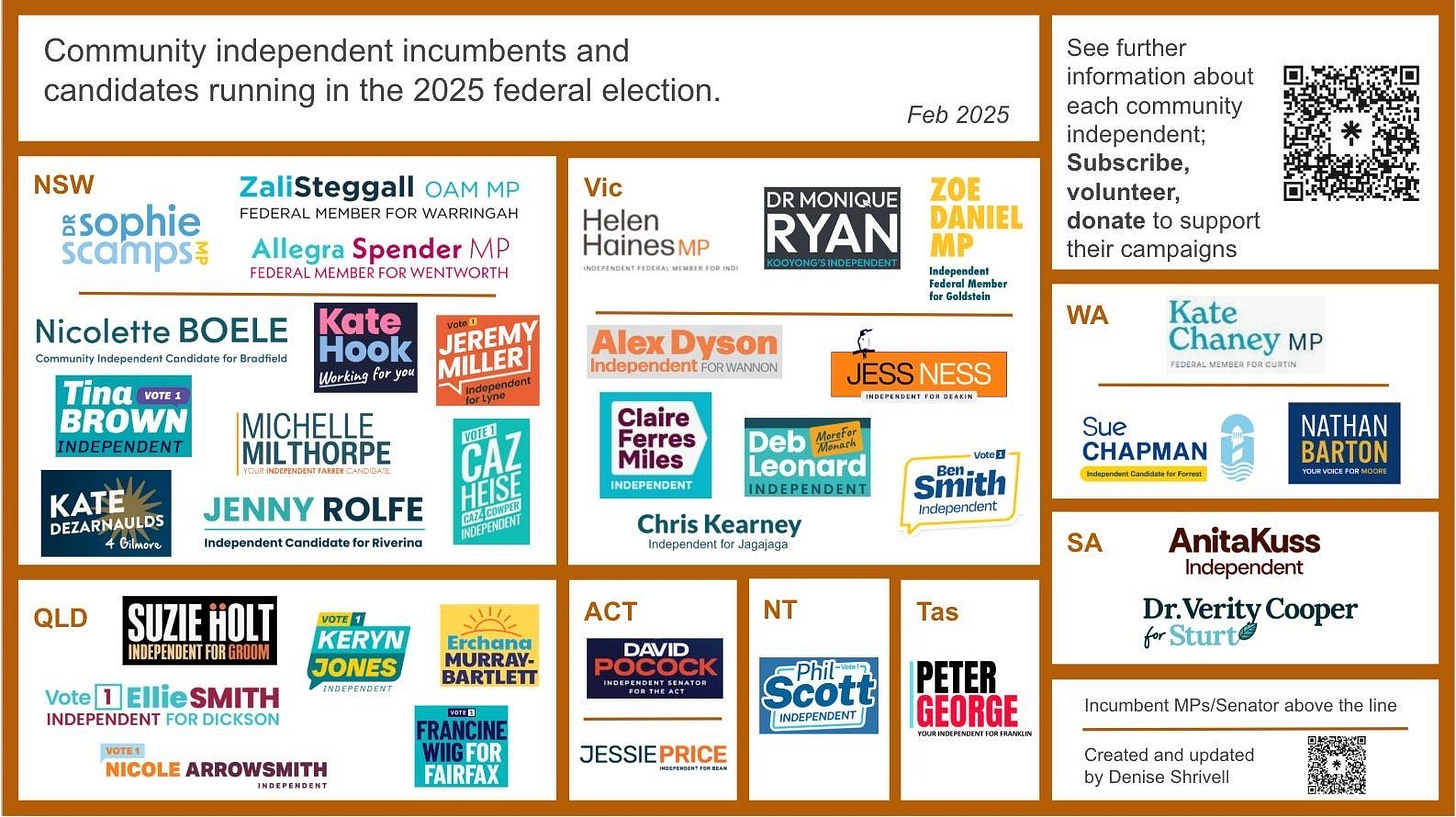The Fragile Web: Power, Systems, and the Fight for Our Collective Future
Will We Be Remembered as Architects of Collapse or Builders of Renewal?
History will judge our era as one shaped by unchecked power, environmental neglect, and systemic failures. Figures like Donald Trump, Elon Musk, and Vladimir Putin, alongside billionaire rent-seekers and the fossil fuel industry, have prioritised personal gain over collective well-being. Yet, we stand at a crossroads—will we continue down a path of destruction or forge a future of resilience, innovation, and renewal?
The Architects of Our Fate
These powerful figures operate with a narrow vision, disregarding humanity’s need for cooperation to survive and thrive. Trump’s administration is dismantling regulations protecting the economy and environment, accelerating political instability, economic disparity, and climate crises. Musk’s obsession with deregulation and privatisation ignores the broader impact of destabilising public systems. Putin has weaponised energy politics, fuelling global instability. Saudi Arabia, through OPEC, has stalled global climate action to maintain fossil fuel dominance.
The Fossil Fuel Cartel and the Billionaire Rent Seekers
Fossil fuel oligarchs, including the Koch brothers, have systematically obstructed climate progress, funding misinformation, lobbying against green policies, and ensuring continued dependence on outdated energy models. Their influence, particularly in the United States and now in Australia via Advance Australia, has diluted or blocked crucial legislation, trapping nations in cycles of environmental destruction.
Yet, resistance is growing. Corporations are shifting towards sustainability, governments face mounting pressure for stronger climate policies, and grassroots movements demand change. The question remains: will these efforts be enough to dismantle the entrenched power of the fossil fuel cartel?
The Importance of Systems and Purposeful Action
Our crises stem from a failure to understand systems thinking. Strong, well-designed public systems—health, education, energy, governance—are essential for stability. Yet, deregulation and short-term profiteering have eroded these foundations, leading to economic collapse, environmental degradation, and social fragmentation.
Environmental systems must also be considered in this framework. Models like Doughnut Economics highlight the need to balance economic development with ecological boundaries, ensuring sustainability while addressing social inequalities. Most policy-making and business strategies focus on short-term gains, ignoring the interconnected, long-term consequences of resource depletion and climate instability. Without a shift towards holistic, systems-based thinking, we risk further entrenching crises rather than solving them.
Purposeful systems must prioritise interdependence over individualism, sustainability over short-term profits, and equity over exclusion.
Lessons from History: The Danger of Simplistic Solutions
History is filled with lessons about the perils of ignoring complexity. Germany’s post-WWII reckoning with its past highlighted the necessity of collective responsibility and systemic reform. While denazification was imperfect, it sought to dismantle destructive ideologies and rebuild institutions that prioritised democracy and accountability.
Likewise, simplistic answers to complex problems have repeatedly proven disastrous. Economic crises, environmental collapse, and social upheaval often result from leaders seeking quick fixes rather than addressing root causes. The rise of nationalism, deregulation, and short-term profiteering are symptoms of this failure to engage with systemic thinking.
Will we heed these lessons, recognising that lasting solutions require depth, collaboration, and a commitment to truth? Or will we continue down a path of denial and division, repeating the mistakes of the past?
Australia at a Crossroads
Australia faces a crucial moment. With vast natural resources, scientific expertise, and strong communities, we could lead on climate action, economic reform, and social equity. Yet, our dependence on fossil fuels, political inertia, and short-term thinking threaten our future.
Meanwhile, the Liberal-National Coalition seems intent on emulating Trump-style politics—undermining democracy, sowing division, and prioritising corporate interests. The United States offers a stark warning of where this path leads: eroded truth, rising instability, and failure to address urgent global challenges.
Movements for Indigenous recognition, environmental restoration, economic diversification, and the Community Independents movement are gaining momentum. Will we seize this opportunity, or will vested interests dictate our fate?
What Will We Say About Our Actions?
History may judge us harshly for inaction on climate change, social justice, and economic inequality. However, it might also highlight the resilience of communities, the perseverance of scientists, and the courage of leaders who dared to steer against the tide.
To shift our trajectory, we must prioritise sustainability over exploitation, long-term governance over short-term gain, and unity over division.
Surviving and Thriving Beyond Crisis
George Monbiot warns of systemic collapse, underscoring the need for community-based resilience. If collapse comes—financial, environmental, or health-related—survival will depend on those who prepare, collaborate, and adapt at local levels.
We still have choices. Innovation in renewables, equitable economies, and accountable leadership can reshape our future. The fate of our time is not set in stone; it is being written by our actions now.
What You Can Do Now
George Monbiot in his 18 Feb 2025 Guardian article (see link below) highlights the need for systemic action and grassroots mobilisation to counteract corporate and political inaction. Here are practical steps individuals can take:
Support Local and Sustainable Economies – Prioritise businesses that invest in sustainability, fair wages, and ethical supply chains.
Engage Politically – Vote for leaders who prioritise climate action, social equity, and strong public systems. Challenge misinformation and demand accountability.
Build Community Resilience – Strengthen local networks, support cooperatives, and advocate for public infrastructure that serves collective needs.
Reduce Dependence on Fossil Fuels – Transition to renewable energy sources, reduce consumption, and advocate for systemic policy shifts towards sustainability.
Challenge Simplistic Narratives – Promote critical thinking, question corporate propaganda, and educate others on the complexities of systemic issues.
Let’s Take Action Now
If humanity endures, our era will be remembered for either missed opportunities or decisive action. The consequences of profit over planet, division over unity, and short-term greed over long-term survival will be stark.
But redemption is possible. At the brink, societies can choose change. Future generations will inherit either the ruins of our complacency or the legacy of our courage.
The crossroads before us demands that we choose wisely—for the echoes of our time will resound far into the future.
Onward we press
Resources
George Monbiot, 18 Feb 2025: There are many ways Trump can trigger a global collapse: here is how to survive if it happens
5 Feb 2025: A great link to Zoe Daniel’s National Press Club speech on YouTube. Feel free to give it a like and comment if that’s your style.
Vote Community Independents: Not shit candidates list
The Smarter Choice: Why Community Independents are the change we need in Australian Politics
The Movement we helped build: From Ian Macphee to Zoe Daniel
Ian Macphee Articles
Our Democracy is Damaged - only progressive independents can repair it - 4 Dec 2021
We need independents to check ‘Power Hungry’ political parties - 10 Aug 2021




